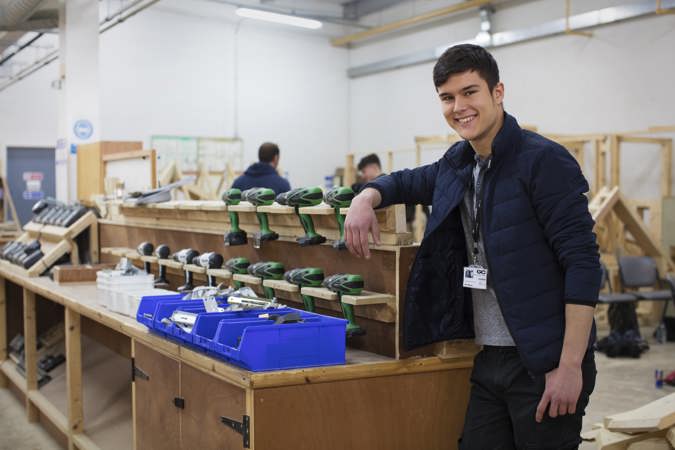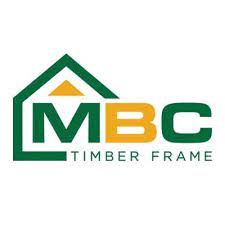What You Will Pay
Please contact Student Services on 0345 155 2020 for pricing information.

Groundworkers are the first trade onto a construction and civil engineering site and they work closely with supervisors and engineers in interpreting design specifications to prepare the site ready for the structural building works to take place. They continue their work throughout the construction phase, working with all on-site construction trades, such as bricklayers and plant operatives, up to and including the final completion activities of the project. Their work includes setting out and preparing the subsurfaces ready for the structural work to begin, installing drainage systems, concreting, constructing roads and pathways and carrying out the finished hard landscaping.
Delivery model and duration:
Apprentices will attend college on block release. Theory lessons will be reinforced in the workplace and practical skills will be practiced and enhanced in college and the workplace. This can be supported by some remote delivery if required.
Qualification: Groundworker Apprenticeship Standard Level 2
Duration: 18 months plus End Point Assessment
Please note - whilst you can apply for this course anytime we recommend you contact us on 0345 155 2020 (option 2) or email apprenticeship.vacancies@gloscol.ac.uk to find out the start dates.
Ideal for:
• Individuals seeking a career in the construction trade
• Existing employees wishing to upskill
The apprenticeship will cover the following core areas:
• Health and safety
• Accessing and interpreting drawings and specifications
• Using and maintaining power tools and equipment
• Gauging and mixing mortars and concrete by hand and by mixer
• Installing and testing basic drainage and ducting
• Forming and reinstating excavations and surfaces to sub-grades, sub-bases and roads
Benefits for learners
• Receive training from experts with years of industry experience
• Gain a nationally recognised qualification
• Become occupationally competent
• Advance career aspirations
Benefits to business
• Nurture loyal and competent members of staff
• Upskill existing members of staff
• Gain employees who have the relevant knowledge and skills to succeed in their role
| Knowledge | Skills |
| The principles of health, safety, welfare and environmentally responsible work practices and how they must be applied in relation to the work, self and to others including understanding the principles of risk assessments |
Working safely and securely in compliance with given information, organisational policies and procedures, and current health, safety and welfare legislation including following the procedures for working in contaminated ground. |
| Basic awareness of environmental and health hazards e.g. Japanese knotweed, asbestos. How to identify contaminated ground conditions and the procedures for working safely on it. |
Conforming with productive working practices and completing the work in accordance with the programme of work |
| Basic principles of Building Information Modelling (BIM), drawings, method statements, manufacturers’ information, work schedules and specifications |
Interpreting and following verbal and written work instructions from supervisors and site managers |
| Technology including key factors and systems of work appropriate to different work environments and industry sectors (e.g. civil engineering, private residential, commercial) |
Accessing, interpreting and using drawings and specifications |
| The differences between modern and traditional construction methods and the physical and environmental factors when undertaking construction work and their potential impacts |
Selecting the required resources including tools and fixtures |
| The techniques to handle and move loads manually and with mechanical aids including guiding the movement of articulated vehicles, plant and machinery using hand signals, hand signalling equipment and verbal/electronic communication equipment and storing resources safely and securely |
Moving, handling and storing resources complying with relevant legislation & guidance |
| Why, when and how health and safety control equipment should be used when undertaking groundworks (e.g. personal protective equipment (PPE) |
Using and maintaining power tools and equipment (including;. compactor plates, boning rods, portable power tools, levels, straight edges, lines, pins and laser equipment) |
| The principles and methods of working within confined space work | Gauging and mixing mortars and concrete by hand and by mixer |
| Erecting and dismantling access/working platforms | Selecting and using basic setting out equipment including tape measures, levels, straight edges, lines and pins, boning rods and laser equipment under guidance of the supervisor |
| Establishing work area protection | Installing, maintaining and removing temporary protection and safety arrangements for the work area relating to barriers and temporary structures, including protection, safety notices and safety lighting |
| Locating and excavating to expose buried utility services | Installing and testing basic drainage and ducting |
| Providing temporary works including excavation support | Measuring, marking, cutting and installing geo-membranes to stabilise soil for re-instatement and excavations |
| The basic principles of internal/external drainage and ducting systems |
Transporting and placing, then compacting and finishing concrete to slabs/bases, footing oversights, paths, form slab edgings including positioning reinforcement and kerbs |
| Measuring, marking, cutting and installing geo membranes to stabilise soil |
Setting out and laying flags, paviours and edging to paths, driveways and other areas |
| Gauging, mixing, placing, compacting and finishing mortars and concrete by hand and by mixer |
Installing ironworks relating to access covers and frames, and gully grates and frames including preparatory brickwork |
| Reinstating excavations and ground surface finishes including installing street ironworks | Locating and excavating to expose buried utility services using electronic location instruments. |
| Providing and removing temporary works including shallow excavation support (up to 1.2 metres |
|
| Forming and reinstating excavations and surfaces to sub-grades, sub-bases and road bases |
|
| Preparing to, then directing and guiding the movement of vehicles, plant or machinery |
GCSEs in English and maths grade 9 - 3 or A*- D
Completers may want to progress to Surveying Technician Apprenticeship Standard Level 3
If you would like to apply for this course, please add it to your shortlist. You may then add further courses to your shortlist or continue to complete your application.

Please contact Student Services on 0345 155 2020 for pricing information.
Construction is a key industry sector in Gloucestershire and now is the perfect time to train for a qualification in any of the industry areas we offer. Our construction courses are a great way to develop skills and build the foundation for a successful career in domestic and industrial construction.
We are the first UK college to buy a house as a renovation project for our construction and building services students, to further develop their skills and provide them with practical experience of working on-site with other trades, and it’s initiatives like this that ensure our students leave us employment-ready.



















Check the progress of your application and find out everything you need to know about the application and enrolment process at GC.